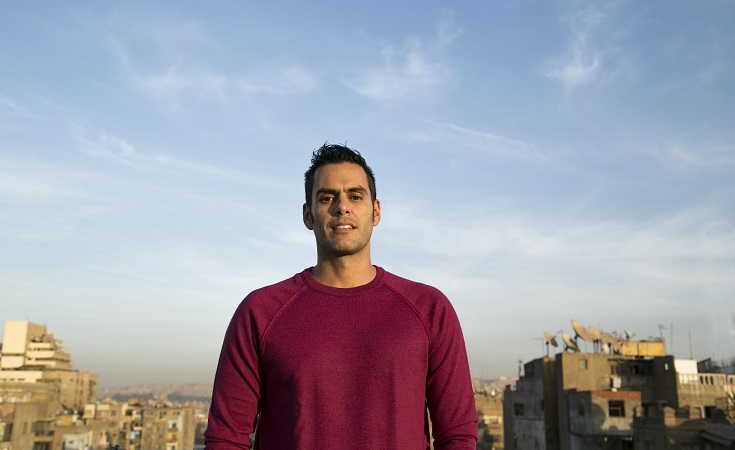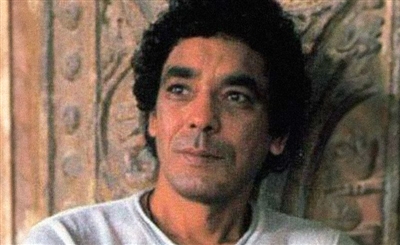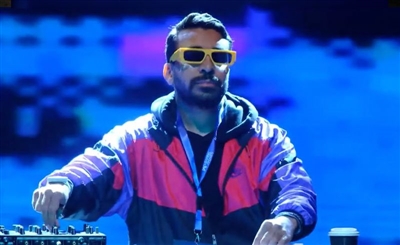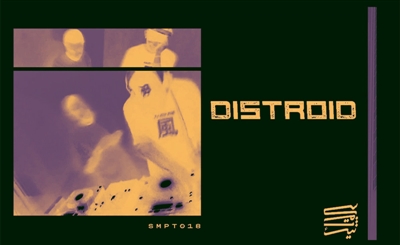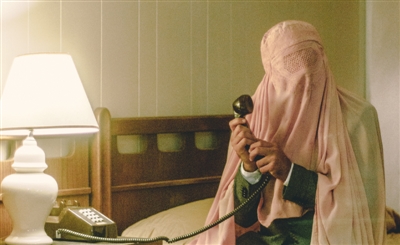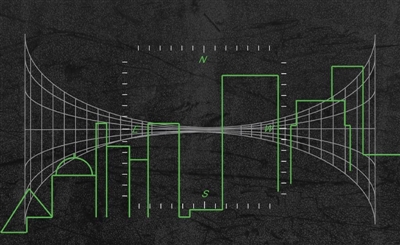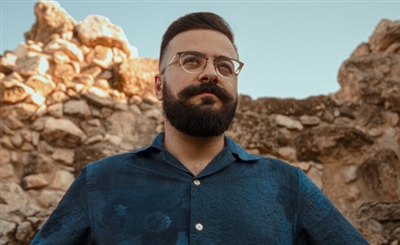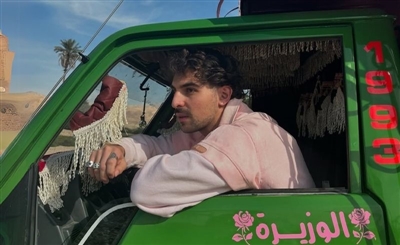No one quite understands the mechanics of being Hisham Kharma, not even the man himself. He exists in a Neverland of his own creation, where adults are pirates and imagination is the only tangible metric to measure a person’s worth. His music is a multitude of influences and seemingly incongruous genres coming together to drag you out of bed in the morning in the most melodious and harmonious way there is, like a cheeky yet adorable child.
Born to a traditional Egyptian family, Kharma found a role model to look up to everywhere he looked, and in their eyes, he could see his preset future staring back at him. “I come from a typical Egyptian family; supportive parents, a sister, and cousins – a huge family, typical Egyptian Greek kind of family,” Kharma jokes. “Despite always being supportive, they still wanted me to pursue the typical career path – out of love, of course.”
Like most people, Kharma was born with a built-in sense of self, like a compass with which to navigate one’s way through life. “I discovered my passion for music when I was nine years old, and since then I started playing the piano for an hour, two hours, until it reached 12 hours a day – this is how it all started,” he reminisces. But unlike most people, he never let his instincts wane with time. “I consider myself lucky to have dealt with music as a hobby; that gave me space to create because there are no rules, you just do whatever you want,” he says pensively. “When I decided to take it up professionally, I thought why not take two or three classes and learn theoretically; I couldn’t, I felt imprisoned.”A computer science major, Kharma graduated from AUC to open doors, all leading to endless opportunities to join the ranks of the factory-made corporate pseudo-humans. “I worked in the field for a year and a half, but I’ve always been inclined towards arts – music, photography, directing, graphic design, etc.,” he recounts. “When I graduated, it was the typical 9-to-5-job culture we’re raised in, but I started to feel that that was not where I belonged.”
Unwilling to bury his inner child under a pile of bills and credit cards, Kharma went into advertising, and for 14 years he led a career that culminated in him heading a Japanese creative agency in Dubai. By then he had already released his first album, First Voyage, which topped the Virgin Megastore charts and was even featured on Buddha Bar and Café Delmar’s playlists, but his true ‘awakening’ – as he likes to call it – came the morning after a Yanni concert in Dubai. “That was my awakening moment, I realised this is what I wanted to do: I want to produce music. I saw the way the audience interacted, people from all over the world who don’t necessarily speak the same language as the musician. It made me want to communicate through my music,” he effuses.
A year later, Kharma signed on to Sony Music’s Arabesque, which saw him featured alongside music giants such as legendary Greek composer Yanni and prolific Turkish musician Can Atilla in a series of albums that encompass the vibrant sounds of the Middle East’s rich and diverse musical tapestry. His awakening came alongside Egypt’s. Quite serendipitously, as if by cosmic coincidence, in 2011 – when the country’s squares were raging with protest and dissent, with masses taking to the streets to demand social and political change – a revolution started brewing inside him too. “The moment I decided to return to Egypt from Dubai, everyone said, ‘Are you crazy? You’re heading a big agency, great status financially and everything, why are you coming back?’ but I see opportunity in chaos,” he says casually. “To me, even if it’s dark and everything is as bad as you can imagine, this is an opportunity for entertainment – people need to get entertained, and they’re open to new things. That’s why, during the revolution, you had music bands, graffiti artists, entrepreneurs, and startups burst into the scene.”
That is not to say Kharma gave up a lucrative job for the insecurity of a career in music without flinching. “It was definitely challenging because I had responsibilities; I’m a father of three, so that was a decision taken at a difficult time. But at the end I arrived at the conclusion that if I’m happy doing what I love I could achieve more, and I can make the people around me happier,” he explains.
And just when you think there couldn’t be a bigger winner at life, he goes and creates Egypt’s biggest online platform for blood donation, Law3andakDam, which matches donors with recipients. “I was shocked by the corruption in this area and the shortage of blood; I wanted to do something about it," he says. “I gathered my team to discuss how we are going to approach this sensitive matter in an innovative way, and we partnered with other developers, other people in the tech business, and we achieved it.”
Easier said than done? Not to Kharma. “I believe everyone has their own gift or talent, and the moment you feel it’s affecting others in a positive way, I believe you need to think of how you can take it to a mass level,” he enunciates, as if to hold everyone accountable for their shortcomings. “I hate labels; to me creativity is creativity, it can take the form of photography, music, directing, a business idea, a cause. So the moment you perceive it as creativity on its own, you just work on the skills you have and you collaborate with people who complement you to achieve whatever’s possible.”
Now, the 36-year-old musician is embarking on a new adventure: his latest studio album, Al Yaqeen ('Certainty'). “Al Yaqeen, the title track, was composed 20 years ago, really,” he says matter-of-factly.
Certainty might as well be Kharma’s middle name; he swaggers without a care in the world, as though life’s ugliness can’t touch him. For a minute there, while he was standing by the ledge on the rooftop of The GrEEK Campus’ Jameel Building, he seemed invincible; he seemed like an oracle, like the king of the world. It is as if he made a decision a long time ago not to be one of those people who walk out of this life incomplete, those who are laid to rest with nothing but unfulfilled dreams to keep them company in the afterlife.
Kharma has refused to sell his inner child into slavery; he is the master of his own destiny. Even when life seems like a vast tumultuous ocean, even when our tiny boats capsize, you can bet your bottom dollar he’ll emerge with that pearly white smile of his and compose a piece of music so uplifting it’ll make you paddle your way back to shore.
Shoot by @MO4Network's #MO4Productions.
Photography and Art Direction by Malak El Sawi.
Cinematography by Mina Saber and Mahmoud Ismail Gawish.

